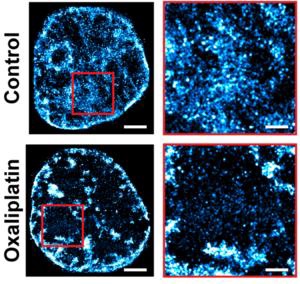Overview
- Published July 22 in the Proceedings of the National Academy of Sciences, the study showed adding celecoxib to paclitaxel doubled tumor suppression in a mouse ovarian cancer model compared to chemotherapy alone.
- The approach targets three-dimensional chromatin packing domains that store transcriptional memory and drive rapid treatment resistance.
- A physics-based Chromatin-Dependent Adaptability model guided high-throughput screening of FDA-approved drugs, identifying the anti-inflammatory celecoxib as a transcriptional plasticity regulator.
- Enhancing chemotherapy efficacy through chromatin reprogramming could enable lower, less toxic drug doses without compromising treatment outcomes.
- Researchers are expanding their screening for more selective chromatin modulators and planning immune-competent studies to pave the way for human clinical trials.
